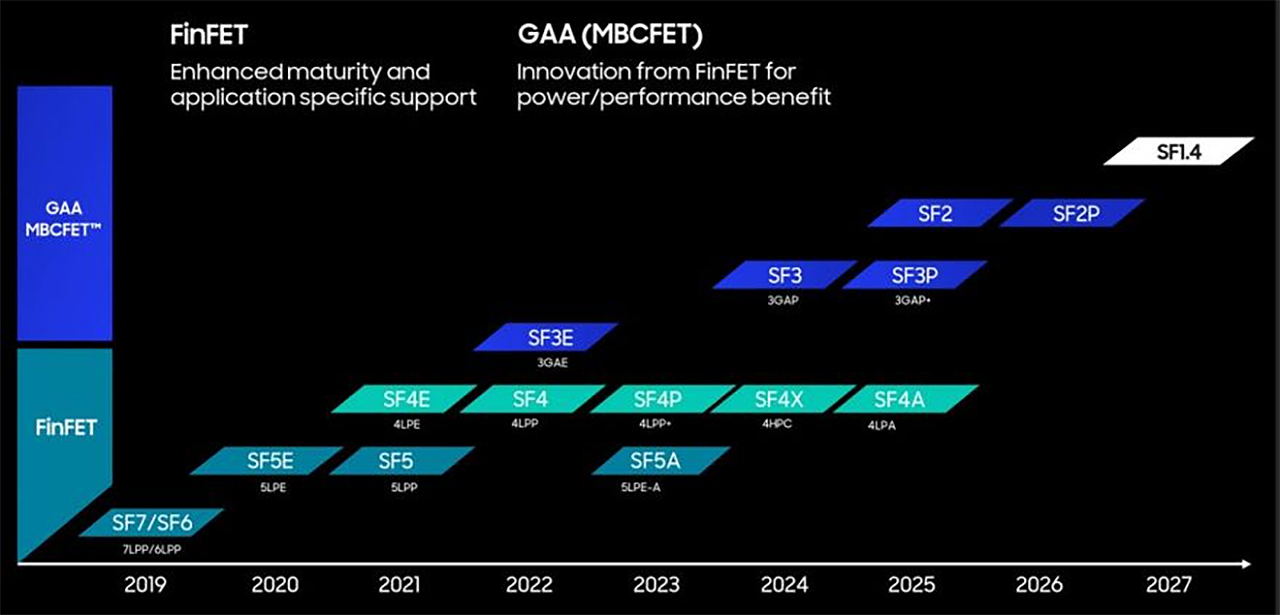
Samsung Foundry plans to disclose more details about its upcoming SF4X process technology that will target high-performance computing (HPC) applications, such as datacenter CPUs and GPUs, at the 2023 Symposium on VLSI Technology and Circuits. The new fabrication technology — previously known as 4HPC (4nm-class, high-performance computing) will not only enable higher clocks and efficiency, but will also support increased voltages for those who need maximum performance.
Samsung's new SF4X promises a performance increase of 10% while achieving a 23% reduction in power consumption. Although Samsung has not provided a specific reference point for these comparisons, it is likely that the chipmaker is comparing SF4X to its standard SF4 (4LPP). The performance gains and power savings are a result of a comprehensive reassessment and redesign of the transistor source and drain under likely high-stress conditions, further transistor-level design-technology co-optimization, and redesign of middle-of-line (MOL) circuitry.
Thanks to this new MOL, SF4X boasts a validated CPU minimum voltage (Vmin) of 60mV, a 10% decrease in off-state current variation, assurance of high voltage (Vdd) operations at over 1V without performance degradation, and an enhanced SRAM process margin.

The SF4X is set to compete with TSMC's N4P and N4X nodes, which are set for release in 2024 and 2025, respectively. For now, it is impossible to determine which technology will provide the best mix of performance, power, transistor density, efficiency and cost, based solely on the claims made by foundries.
HPC applications, such as datacenter CPUs and GPUs, require a substantial amount of power and are designed to handle heavy loads regularly and then burst their frequency if demand for higher performance rises. Therefore, a more advanced fabrication processes, like SF4X, can significantly improve performance and efficiency of CPUs and GPUs. In addition to pure performance, power efficiency is a critical concern for these applications. The SF4X's 23% reduction in power consumption, compared to its predecessor, can result in substantial cost savings and reduced environmental impact over time.
It is noteworthy that SF4X is Samsung's first modern node specifically developed for HPC applications, indicating that Samsung anticipates sufficient market demand to justify the effort. Keeping in mind that HPC, like 5G and AI, is an industry megatrend, Samsung Foundry has all the reasons to expect this technology to be adopted by at least some of Samsung's 150+ customers.
In fact, HPC-oriented nodes are in high demand, both by established market leaders like AMD, IBM, Intel, and Nvidia as well as newcomers like Ampere or Graphcore.







